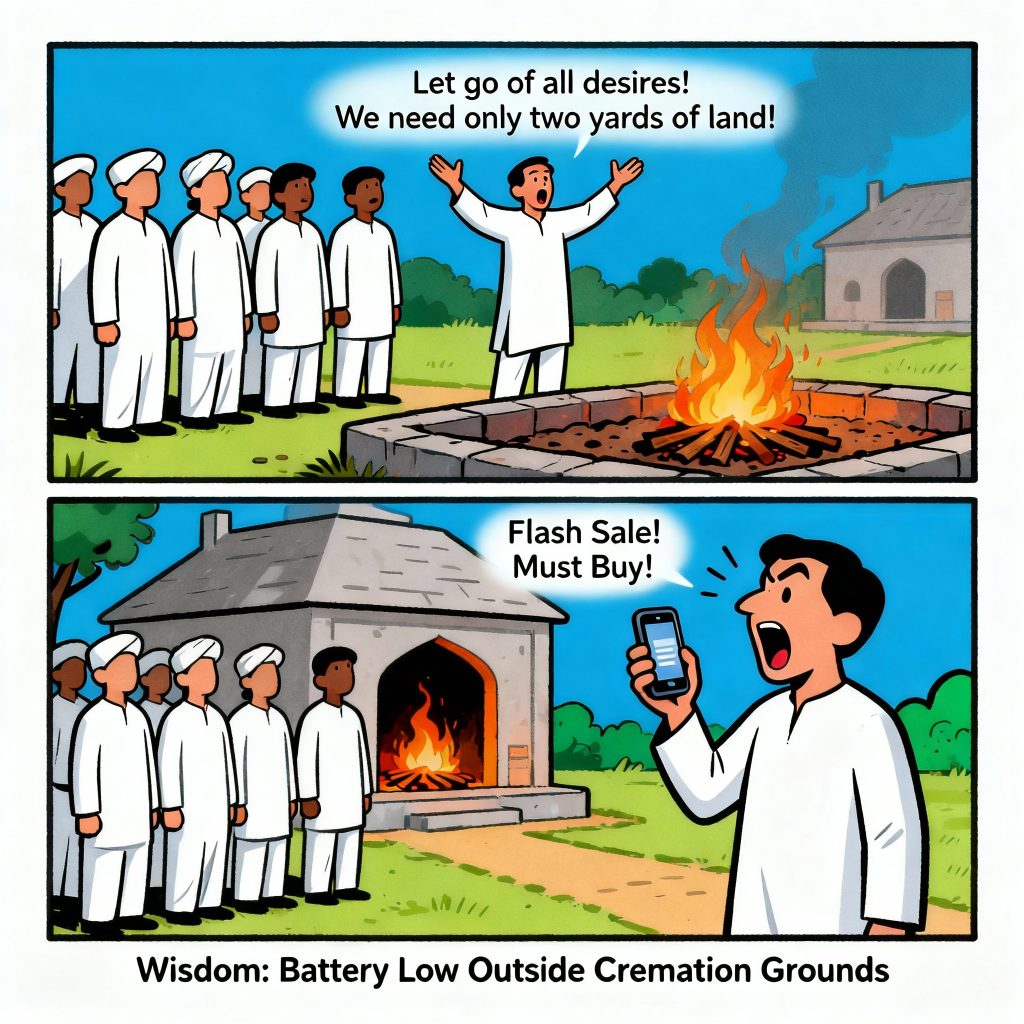They say, “When you enter a cremation ground, life suddenly feels like a WhatsApp forward—short, direct, and filled with too much advice you’ll ignore by lunchtime.” Every scripture worth its salt (and believe me, ancient rishis loved their metaphors more than millennials love filters) has just one moral: LET GO. “Desire nothing, attach to nothing, and voila—Moksha awaits!” Easy, right?
Try telling that to anyone at a funeral. The entire crowd suddenly transforms into part-time philosophers and full-time wisdom distributors:
- “My dear, see how everything is temporary. Let’s not run after money or fame.”
- “Ultimately, all we need is two yards of land…”
- “Live so that the world cries when you go…”
How poetic! People nod wisely, look mournful, and for about ninety minutes, everyone’s the Dalai Lama. But, step outside the gates, and the “mukti mode” switches off faster than a phone on low battery. The same uncle who said “Give up desires” is now negotiating tomato prices with the ferocity of a Wall Street trader and googling the best four-star resorts for Diwali vacation.
Our Eternal Problem: Short-Term Memory Loss
Maybe that’s why ancient texts keep repeating themselves—they KNEW we’d forget. Let’s be honest: If spirituality were a mobile app, “letting go of desires” would be the feature everyone disables by default. “Sure, oh holy app, but can I keep notifications for discount sales and ‘likes’ on my new car selfie?”
Comic Truth: Moksha, But With WiFi
The truth is, wisdom hits us hardest when surrounded by ashes and silence—and evaporates as soon as we hear the jingle of an online sale or spot two neighbors arguing over parking. If only detachment were as contagious as phone updates!
So next time you give a life lecture at the cremation ground, remember: The real journey is taking that wisdom past the gates—hopefully before you start checking your Instagram notifications again. And if you do forget, relax! Even the ancient sages probably had to remind themselves: “Uninstall desire, reinstall wisdom, repeat as needed.”
This style blends humor, relatability, and a modern twist on a timeless spiritual message, making it appealing for today’s readers who like their “wisdom” with a side of wit and a dash of irony.

